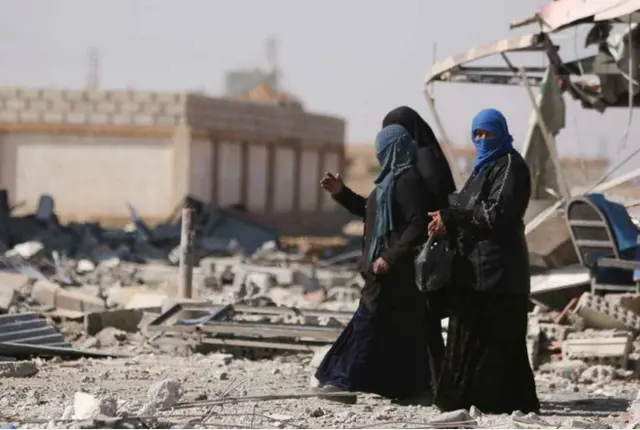Fighting largely halted in most areas of western Syria after a cessation of hostilities plan backed by Russia and the United States went into effect at midnight Friday.
In Damascus, calm prevailed at hotspots in the eastern suburbs of Jobar and Douma, which witnessed heavy shelling and airstrikes during the day on Friday.
A soldier in the northeastern suburb of Harasta told Xinhua the situation there has been calm with no shelling.
In the streets of Damascus, passing cars were checked carefully and passersby in some areas were even asked to show IDs, in what appeared to be an extra measure.
Reports say the intensity of battles usually declines at night, thus whether there is a real cessation of hostilities will not be known until morning.
Earlier in the day, the Riyadh-backed Syrian opposition group, Higher Negotiation Committee (HNC), announced that most of the rebel factions had agreed to a ceasefire in Syria, the Saudi-funded al-Arabyia TV reported.
Most of the Syrian rebel groups, to which the cessation of hostilities plan applies, have expressed readiness to commit to the deal, the report said, adding that the Free Syrian Army, one of rebel groups backed by the West, has accepted the plan and pledged its commitment.
The report said it was not clear whether any rebel group rejected the plan.
Meanwhile, the HNC warned the Syrian government against exploiting the truce under the pretext of fighting terrorism.
On Tuesday, the Syrian government accepted the plan reached one day earlier. It has warned the rebels not to take advantage of the pause in fighting to enhance their positions.
On Friday, members of the United Nations (UN) Security Council unanimously adopted a resolution to endorse the cessation of hostilities in Syria, demanding all warring parties comply with the terms of the U.S.-Russian deal, which excludes the Islamic State (IS) group and the al-Qaida-linked Nusra Front, both of which are designated by the UN as terrorist groups.
While briefing the security council by satellite from Geneva, the UN Special Envoy for Syria Staffan de Mistura warned that there would be breaches of the ceasefire and all sides have to be prepared to deal with them in a sober way and work to identify the cause of the breaches.
"This will remain a complicated, painstaking process," he told the council, adding "nothing is impossible, especially at this moment."
Observers in Damascus said that if the truce succeeded, it would be the first step toward a political solution to the country's nearly five-year-old conflict, which has killed more than 250,000 people.
Mistura also said that a new round of Syria talks will be held on March 7 in Geneva with the participation of representatives from the Syrian government and the opposition.
The IS is in control of the entire northern province of al-Raqqa, large swathes of land in the eastern province of Deir al-Zour, some areas in the northern province of Aleppo and the central province of Homs.
The Nusra Front controls much of the northwestern province of Idlib, areas in the southwest of Damascus, and the central province of Hama and the northern countryside of Latakia.
Both the IS and Nusra also control areas near the border with Turkey in the north.
The U.S.-led anti-terror coalition and the Russian air force will continue to target the positions of the Nusra and the IS during the truce.
The pan-Arab al-Mayadeen TV, which has a wide network of reporters on ground in Syria, said rebels started shelling government controlled areas in Aleppo minutes after the cessation of hostilities went into effect.
Shelling was heard reverberating from the Daraya suburb, southwest of Damascus, as the suburb is controlled largely by the Nusra Front. Enditem
 简体中文
简体中文





